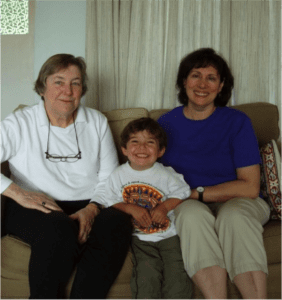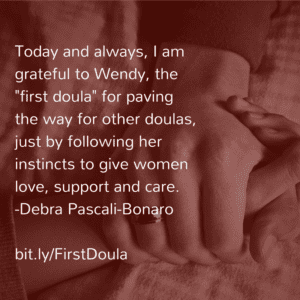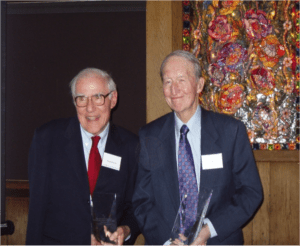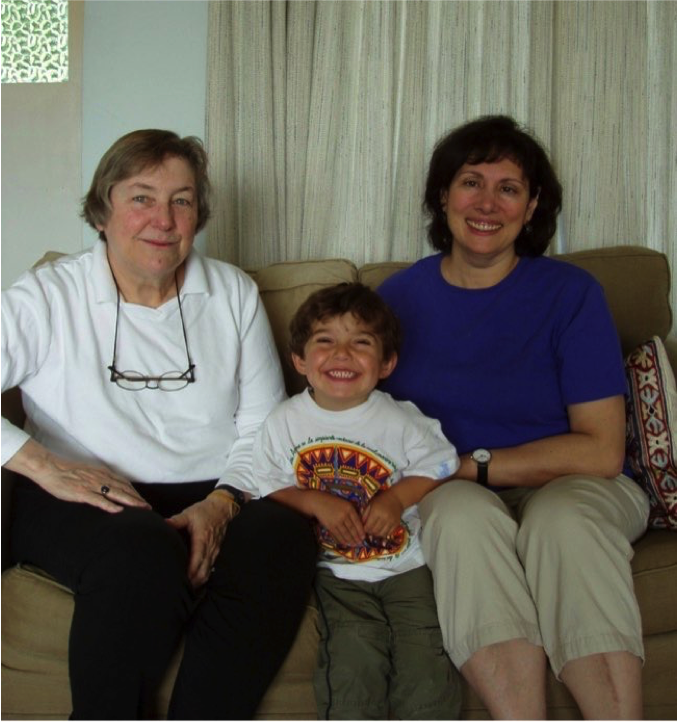Interview taken May 28th 2003 Seattle, WA – Penny Simkin’s home
[Tweet “Wendy Freed the first “doula” shares how she couldn’t just observe women in labor.”]
In 1973, Wendy Freed, an undergraduate student at UC Irving, spent the summer in Guatemala learning about Public Health, the culture and the language. The following summer, after Wendy had finished her 3rd year of university, she learned that Dr. Marshall Klaus, as old medical school friend of her father’s – what they called “cadaver buddies” – was beginning a new study at Roosevelt Hospital in Guatemala with birthing mothers to learn more about parent/infant bonding. When Wendy learned of this opportunity, she happily took it – excited to return to Guatemala again, already familiar with the culture and language.
Roosevelt Hospital in Guatemala City was a very busy place for birth – with over 50 women giving birth each day. The staff was busy, overwhelmed, and space was limited – requiring many women to labor in a room with up to 2 other women at a time. Women who were willing to participant in the study and met the criteria were given an envelope. This envelope dictated if they would be receiving what was considered “normal care” or “extra contact + rooming in.” Wendy, and the other students, were meant to observe the births that had “extra contact” and make notes.
“I still remember the first birth I ever attended. The women’s composure, the dignity of the indigenous woman, she was so filled with love. I can still remember the birth smells of urine, amniotic fluid and stool all coming together and filling the air as the baby arrived. [Dr.] John Kennell was also present and we were in awe together.”
Dr. Klaus, and his partner in this study, Dr. Kennell, were both pediatricians, but their interest in the babies, did not overshadow their interest and concern for the mothers as well.
Tweet: Interview with Wendy, The First Doula” in the home of Penny Simkin bit.ly/FirstDoula
 Since the hospital was so busy, Wendy began staying at night when it wasn’t as hectic – this was not a part of the study, she had fallen in love with the women giving birth. “There was something magical about being there at night… I couldn’t stay away, I couldn’t just sit there with the midwives and students as women labored often three alone in a room.” One portion of the hospital – “zone 19” was designated for lower income women that had recently migrated from rural to urban areas. These women “…were terrified being in a hospital. [There] was something about the women [in this zone] that was calling me to be with them…I remember one woman saying she had to poop and she gave birth in the bed. I didn’t know anything then, you learned as you went along…”
Since the hospital was so busy, Wendy began staying at night when it wasn’t as hectic – this was not a part of the study, she had fallen in love with the women giving birth. “There was something magical about being there at night… I couldn’t stay away, I couldn’t just sit there with the midwives and students as women labored often three alone in a room.” One portion of the hospital – “zone 19” was designated for lower income women that had recently migrated from rural to urban areas. These women “…were terrified being in a hospital. [There] was something about the women [in this zone] that was calling me to be with them…I remember one woman saying she had to poop and she gave birth in the bed. I didn’t know anything then, you learned as you went along…”
“Another image I hold is of three women in a room, two babies in a bassinet and the other woman griping my arms, the intense physical contact that was there…..In Guatemala there is physical contact in daily life, [and] in passing, so the physical contact was intense – it pulled me into this vortex.”
Wendy said that she sensed that there was something happening for the women when she was present – their emotional experience seemed more positive and much less distressed.
[Tweet “A women’s emotional experience of birth is impacted by those around her.”]Soon, the study officials reprimanded Wendy for violating the design of the study. At her young age of 19, and lack of experience, she did not “not totally understand what a double blinded, randomized, controlled trial was.”

The summer ended, and Wendy returned to UC Irving to finish her undergraduate work. After, she went onto Case Western Medical School, her father’s alma mater. There, she became roommates with Susan Kennell, the daughter of Dr. John Kennell. It was through Susan and the family’s relationships, that she learned of the later doula studies that the Doctors performed.
Today Wendy Freed is a psychiatrist practicing in Seattle, Washington. When her son Ari was born, Penny Simkin one of the founders of Doulas of North America, (DONA) was Wendy’s doula. Her work as a psychiatrist was inspired by her graduate research project that took her back to Guatemala after a terrible earthquake, where she worked as a doula and became interested in trauma. She is considered the “First Doula” by many in the birth world – unable to sit on her hands and just observe, but instead to offer love, support and care to the women of Guatemala giving birth in her presence.
When we neared the end of our talk, I asked Wendy how it felt to be the person that began the whole doula movement. I acknowledged that women have been supporting other woman throughout history and culture, but in the 1900’s we broke this circle. I explained that her concern for the women in Guatemala opened up the path to numerous studies that have documented the many benefits of continuous companionship during labor and birth. The studies then went on to birth the growth of doulas and doula programs around the world. Wendy had never thought about her summer in Guatemala with Dr. Kennell and Dr. Klaus in this way before. It was a powerful moment to see the smile cross her face as she fully grasped the impact her genuine caring and concern for woman in labor has generated since 1974. The next day I was lucky to spend more time with Wendy, hearing stories and looking at photos from her time in Guatemala. In listening and her sharing with me, I could how dear she held this time in her life and how she did not realize the great gift she had given not only to the women she supported in labor, but to women all over the world that are feeling the nurturing touch of doulas at their birth.
Today and always, I am grateful to Wendy for paving the way for doulas, just by following her instincts to give women love, support and care. What are you grateful for today? @orgasmicbirth









Leave a Reply